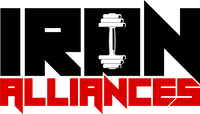
Protein is the foundation of muscle growth and recovery — but many lifters still don’t eat enough. Under-eating protein can sabotage your strength, energy, and physique. Here’s how to spot the signs.
Not sure how much protein you need? Get matched with a coach at Iron Alliances to dial in your macros and recovery.
If you're constantly sore after workouts — even light ones — it might be a protein problem. Protein helps repair muscle tissue after training. Without enough of it, your body stays inflamed and behind on recovery.
Recovery feels slow or inconsistent? A custom nutrition plan from an Iron Alliances coach can fix that fast — start here.
Even with perfect training, your body can’t build new muscle without enough amino acids. If your weight is stalling and your physique isn’t changing, protein could be the missing piece.
According to the Journal of the International Society of Sports Nutrition, optimal protein intake for athletes is around 1.6–2.2g per kg of bodyweight daily.
Low protein intake often leads to low energy, especially during high-intensity or high-volume training. Without proper recovery, your strength and CNS readiness take a hit.
If you're in a calorie deficit and not eating enough protein, your body starts breaking down lean tissue. Prioritize protein when cutting to maintain muscle mass and metabolic health.
Protein supports much more than just muscle — it helps build skin, hair, nails, and connective tissue. Weak nails or brittle hair might be telling you something.
Protein is the most filling macronutrient. If you’re constantly hungry, even after eating, odds are you’re under-consuming protein and filling up on carbs or fat instead.
Protein helps regulate blood sugar and insulin sensitivity. Erratic protein intake can lead to poor nutrient partitioning, water retention, and blood sugar swings.
A good rule: 0.7–1.0 grams per pound of bodyweight. You’ll need more when cutting, and potentially less when bulking.
For healthy individuals, no. Studies show no harm from high-protein diets in people with normal kidney function.
Animal sources like chicken, beef, fish, eggs, and Greek yogurt are high quality. Whey isolate is also great post-workout. Vegans should mix plant sources to cover all amino acids.
Want more lifter-focused nutrition strategies? Browse the full Iron Alliances nutrition hub.
Get matched with a coach who’ll build your macros around your body and training goals — no more guessing.